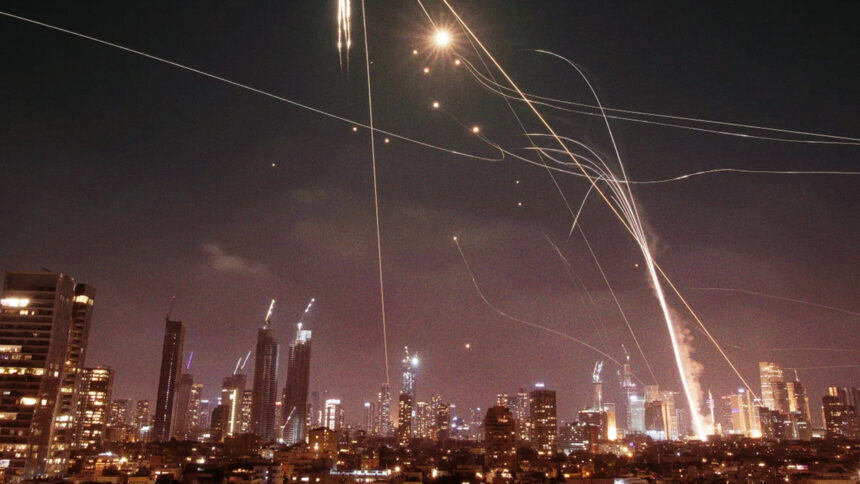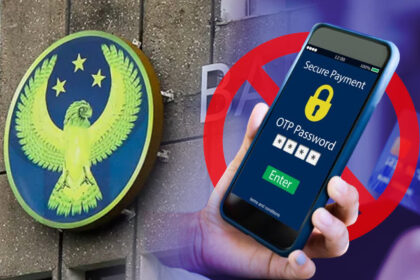Conflicts between Israel and Iran escalate further as the two countries exchange retaliation strikes following the former’s June 13th attack.
In a statement, Israeli Prime Minister Benjamin Netanyahu justified the launching of “Operation Rising Lion” after Iran’s Uranium enrichment program, which Tehran denied its use on nuclear arms, poses a supposed danger to the country’s “very survival.”
“This operation will continue as many days as it takes to remove this threat.” he said in a press briefing.
Netanyahu also criticized the Iranian government’s “genocidal rhetoric” and claimed that the nuclear weapons it is developing will be used against Israel.
“As Prime Minister, I’ve made it clear time and again: Israel will never allow those who call for our annihilation to develop the means to achieve that goal. Tonight, Israel backs those words with action. We struck at the heart of Iran’s nuclear enrichment program,” he said.
The Iranian government consequently launched several missile strikes at Israel in retaliation under “Operation True Promise III.”
Iranian President Masoud Pezeshkian has warned Israel of a “more severe and powerful response” as it continues to send strikes in Iran.
“The continuation of Zionist aggression will be met with a more severe and powerful response from the Iranian armed forces,” Pezeshkian reportedly said in a phone call with Pakistani Prime Minister Shehbaz Sharif.
Behind the supposed nuclear threat of Iran, Netanyahu have stated that the Israel defence establishment also aims to abolish the Iran’s current regime.
Netanyahu have also made demands to the citizens of Iran to “act,” and “rise up” against their government.
“The time has come for the Iranian people to unite around its flag and its historic legacy, by standing up for your freedom from the evil and oppressive regime,” he said.
As of June 18th, 8:00 P.M. Philippine Standard Time (PST), the deaths have risen to 585 people in Iran and 24 in Israel.
Four Filipinos in Israel are reportedly injured after Iran’s retaliation strike over the weekend.
The Department of Foreign Affairs also reported that 21 government officials were stranded in Israel, and are now officially set to return to the country after escaping through Jordan.
They are scheduled to land in the Philippines this Saturday. The Philippine Embassy in Tel Aviv says that majority of these officials were in Israel to attend an agricultural technology training, that started last June 10, and were set to end this June 20.
Iran’s Uranium enrichment
The unprecedented strike from Israel stems from Iran’s growing nuclear program, where its Uranium supplies have been reportedly enriched to 60%.
Uranium enrichment is a process of increasing uranium-235 isotope concentration in natural uranium to be used in nuclear power and nuclear weapons.
Iran has repeatedly asserted that the enriched uranium will not be used in developing nuclear weapons after the United States’ (US) stated concern over it.
“Iran is a committed member of the NPT (Nuclear Non-Proliferation Treaty), and our stance on this matter is crystal clear. Moreover, the Supreme Leader’s fatwa has definitively prohibited nuclear arms, making our position unquestionable.” Iranian Foreign Minister Abbas Araghchi stated in an interview.
Netanyahu claimed to have struck Iran’s main enrichment facility in Natanz, alongside several Iranian nuclear scientists working on the alleged “Iranian Bomb.”
Iran’s Supreme Leader Ayatollah Ali Khamenei also confirmed the deaths of several Iranian commanders and scientists from Israel’s attack.
US involvement
Araghchi claimed to have evidence linking the US to a possible involvement in the Israeli-Iran war.
In a press conference in Tehran, Araghchi told reporters that the Iranian government had documented enough evidence which shows that the US has allegedly provided support to Israel to fuel the tension.
“We have well-documented and solid evidence of the support provided by American forces in the region and their bases for the military attacks of the Zionist regime,” Araghchi said.
US President Donald Trump denied any allegations of involvement in the ongoing conflict between Iran and Israel, but asserted the possibility of the country being involved in the future.
“We’re not involved in it. It’s possible we could get involved. But we are not at this moment involved,” Trump said.








